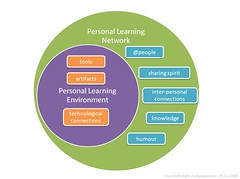Takeshi and all,
Yes you may ask a question, but please ask here by posting questions to the blog. You may have misunderstood the assignment and perhaps the procedure. I don't see any comments posted to the PLN topics. Collaboration and written discussion by posting to the blog are an important part our projects and assignments.
Instead of writing privately, you and Sadamu should have posted comments and questions to the blog. When I send my answer to the blog as I am now, everybody shares the information. That may save me from writing 3-4 more students privately when it's not necessary. Of course there will be times for private communication. However, this is not one of them.
You can show me - in writing right here on the blog. Write out - in your own words - what a PLN is, why you want your network to do, what it should include - and why. You can post this as a comment here or to Sadamu's post. I have to say though, that I think everyone would benefit by more discussion and sharing ideas. I'd also like to post more ideas and materials on the topic.

 PLN stands for Personal Learning Network. These days, English teachers use sites such as twitter and Facebook to create a PLN. We also visit each other's blogs. These sites act as an online staffroom that is open to the whole world. We interact with each other online and share ideas and links.
PLN stands for Personal Learning Network. These days, English teachers use sites such as twitter and Facebook to create a PLN. We also visit each other's blogs. These sites act as an online staffroom that is open to the whole world. We interact with each other online and share ideas and links.